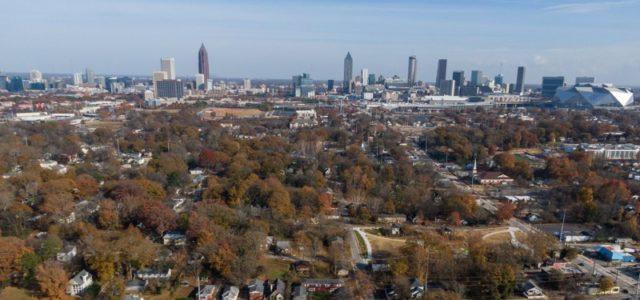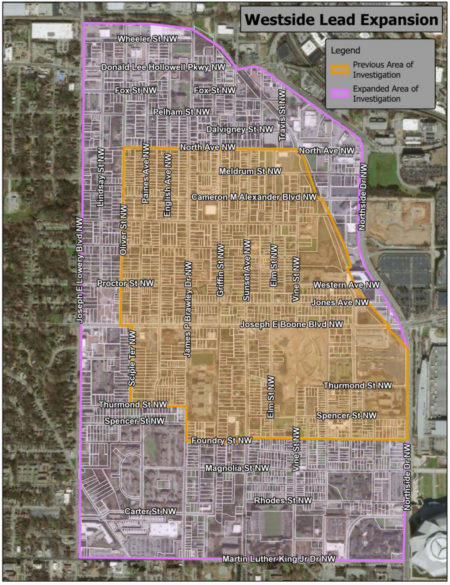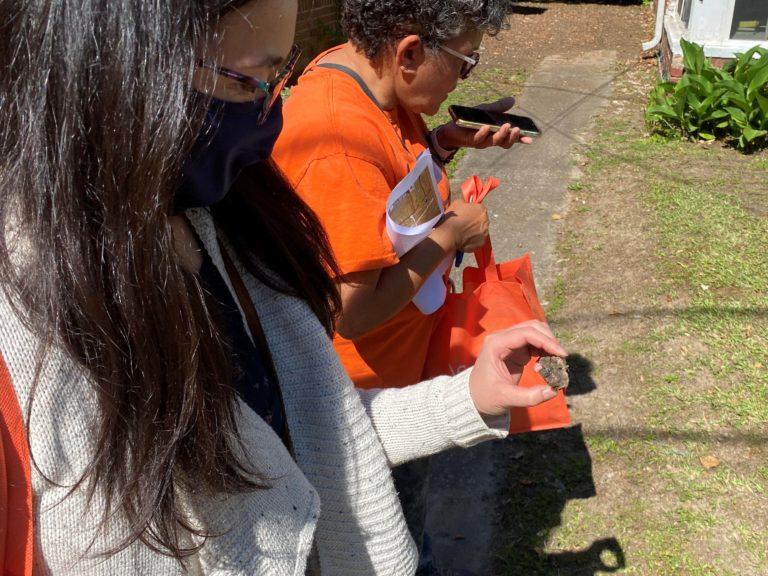
Caption
The EPA has been investigating a large swath of Atlanta’s English Avenue neighborhood for lead in the soil since 2019.
Credit: Georgia Health News

The EPA has been investigating a large swath of Atlanta’s English Avenue neighborhood for lead in the soil since 2019.
The Environmental Protection Agency is proposing to add a westside Atlanta area that’s contaminated with lead to the Superfund program’s National Priorities List (NPL), which would allow more federal funding for cleanup.
The Superfund program, created in 1980, has the responsibility of identifying dangerously polluted sites around the nation, cleaning them up and when possible, holding polluters financially accountable. There are thousands of Superfund sites, but a relatively small percentage are on the NPL, meaning they are especially dangerous.

Expanded Westside lead study area.
The EPA has been investigating a large swath of Atlanta’s English Avenue neighborhood for lead in the soil since 2019. This year it expanded the area under investigation to more than 2,000 properties.
Lead is a potent neurotoxin that’s especially harmful to children.
Of the 753 properties already sampled, 311 have shown levels of lead above 400 parts per million, the EPA threshold that calls for cleanup. The EPA began cleaning up contaminated soil in early 2020, and 93 properties have been remediated. Both sampling and cleanup are free for property owners.
The soil investigations have found large deposits of slag scattered about the area. This material is a byproduct of smelting, and many years ago, people used it to fill in low-lying areas in the neighborhood. Slag can contain lead.
While lead is a natural element, it became a major pollutant because of its long history of being used in industry. This use has been cut back in recent decades, though not eliminated.
The EPA proposal, announced Wednesday, would move the westside cleanup program from a “removal’’ to a “remedial’’ action, and would help the evaluation of human health and ecological risks linked to the contamination.
Using Georgia Department of Public Health data, The Atlanta Journal-Constitution previously found historical evidence of lead poisoning in children in ZIP codes in the area.
A Georgia House study committee, meanwhile, is examining the effects of childhood lead exposure. It had its first meeting last week.
“No amount of blood lead level detected in a child is a safe amount as even tiny traces may impact a child’s ability to learn and succeed in their young lives,” said state Rep. Katie Dempsey (R-Rome), who’s chairing the panel.
The EPA has spent more than $10 million over the last 19 months on both sampling and cleanup in west Atlanta. Based on current projections, the overall costs could eventually exceed $50 million, the agency said.

Saikawa holds a piece of slag with area resident Rosario Hernandez alongside her.
The westside area is one of 13 sites around the nation proposed for the Superfund NPL. Four others have been added to the list, the EPA said.
If the westside area is approved for that designation, “there will be more funding and there would be more personnel working there,’’ said Eri Saikawa, an Emory professor whose team discovered the lead problem in the area in 2018.
An EPA listing could speed the cleanup process and potentially lead to an investigation of possible contamination in other areas next to the investigation zone, she added.
The EPA expects to decide whether to approve the listing of the site in spring 2022.
“EPA recognizes that no community deserves to have contaminated sites near where they live, work, pray, and go to school. By adding sites to the Superfund NPL, we are helping to ensure that more communities living near the nation’s most serious uncontrolled or abandoned releases of contamination have the protection they deserve,” said EPA Administrator Michael S. Regan in a statement Wednesday.
For more information, visit the Georgia Department of Public Health’s website at https://dph.georgia.gov/lead-education-and-faqs. EPA has also gathered additional lead information and resources on a website at www.epa.gov/superfund/westside-lead.
This story comes to GPB through a reporting partnership with Georgia Health News.
